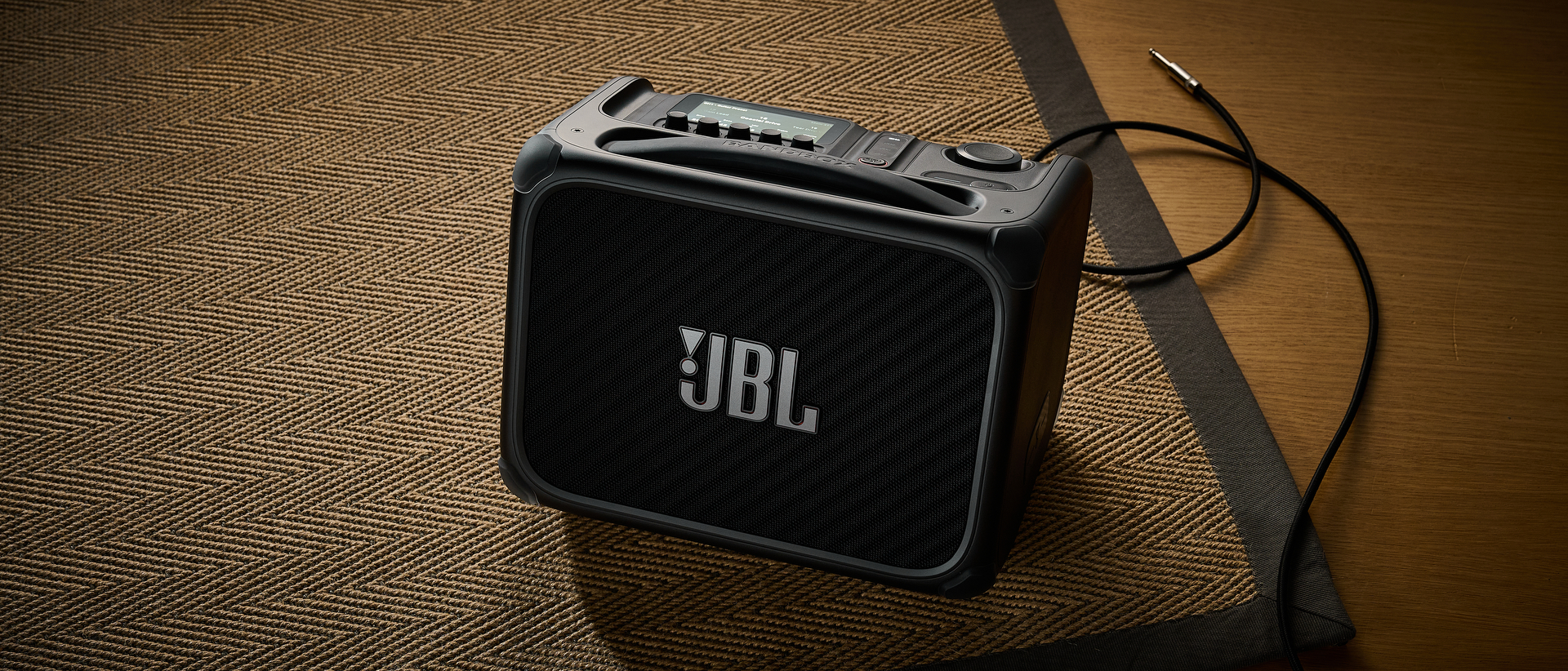“Even though Stevie Ray Vaughan wasn’t playing heavy metal, he had the elements of the style through pure skill alone”: Blues-inspired but metal-trained, he had a top 5 album at 16 – with no spiky guitars in sight. Meet Alien Weaponry’s Lewis de Jong
The New Zealand metallers have supported Kerry King, have Lamb of God guesting on their record, and a sound that celebrates their Māori heritage that de Jong says is all about the riff

All the latest guitar news, interviews, lessons, reviews, deals and more, direct to your inbox!
You are now subscribed
Your newsletter sign-up was successful
Over the past decade, New Zealand trio Alien Weaponry have positioned themselves as one of the most exciting new forces in metal, opening for giants like Guns N’ Roses and Gojira.
After inking a deal with Napalm Records, they released their Tū debut in 2018, peaking at Number 5 in their native charts. What made it an even more impressive feat was singer/guitarist Lewis de Jong being only 16 at the time.
Their second album, Tangaroa, arrived in 2021, not long after landing a worldwide-management deal with the same team who look after Slayer, Mastodon and Ghost, and this year sees them building on that momentum with their third full-length, Te Rā.
The 11 new tracks could very well be the most explosive they’re written to date, splicing elements of groove and thrash metal into a hypnotic storm of noise, with veteran producer Josh Wilbur (Lamb of God, Megadeth) ensuring the three members sound as big as groups with double the personnel.
The Lamb of God connection doesn’t end there, either. Lamb of God’s Randy Blythe lends his voice to the track Taniwha, which was a dream come true for the young bucks hoping to tread similar musical ground.
“[Lamb of God’s] Mark Morton and Willie Adler are huge inspirations for me,” says de Jong, not long after flying back from some American dates supporting Kerry King. “They have this certain something about their tones and riffs – you can always tell when you’re listening to Lamb of God. Randy guesting on our album is one of the craziest moments of our career so far. When me and my brother, Henry [drums] found out, we couldn’t believe it. We were both speechless.”
Who were the first guitar heroes that inspired you to get into music?
All the latest guitar news, interviews, lessons, reviews, deals and more, direct to your inbox!
“The person who made me want to play guitar from a young age was Stevie Ray Vaughan. His whole way of operating and playing the Strat drew me in. You can feel that dude’s soul through his playing. Some of his songs were ridiculously fast.
“Even though he wasn’t playing heavy metal, I feel like he had the elements of the style just through pure skill alone. You can hear it on tracks like Scuttle Buttin’. David Gilmour is another big inspiration. His bends and feel always blow my mind. You don’t even need a vocalist in your band when you’re that good at guitar.”
All three of you share Māori ancestry. When did you realize that the Māori language could work so well with heavy metal riffs?
The sound of the Māori language pairs well with heavy music. That’s been our direction ever since, though we also write some songs in English
“Me and Henry grew up in a Māori-speaking household. We were put in Māori schools as kids. That was instilled in us from a young age. We had friends in a reggae/ska band who entered a competition where the idea was to incorporate native culture into the music.
“We wondered what would happen if a metal band did the same thing. I felt like the concept worked. The sound of the Māori language pairs well with heavy music. That’s been our direction ever since, though we also write some songs in English.”
Which song are you most proud of on this album?
“I love how Hanging by a Thread came out. The ideas on that track capture the emotion well. It’s one of the seven-string songs, so we’re playing in drop A, and I think the tones came out great. It was interesting working with Josh Wilbur; after two days, we locked into his way of operating. It all ran like clockwork.”
What have been your biggest discoveries in the art of riffing?
“The main lessons came from listening to Metallica. You can say what you want about the band, but James Hetfield has a strong right hand. He can rip through those triplets super-tight, like it’s second nature. I wish my chugging and tremolo picking was more natural.
“I’m always focused on making it all match up and sound uniform with no unwanted noises. I have to work hard on not making mistakes. I’m more of a riff guy, though I appreciate lead guitar. I’ve been trying to work on that stuff to see if I can bring it into our sound.”
The best riffs you end up writing are the ones that come out of nowhere. The simple ones that end up stuck in your head
Some of the groove metal ideas on tracks like Tama-Nui-Te-Rā are reminiscent of Gojira, another band who have two brothers on drums and guitar.
“They are the champions of that groove metal sound. They can write riffs that clear your brain, rather than making it more busy. I firmly believe you can overcook an idea until it’s a messy, overcomplicated soup. I’ve been guilty of that in the past.
“I will listen back and think, ‘Yeah, it’s impressive but it doesn’t groove!’ The best riffs you end up writing are the ones that come out of nowhere. The simple ones that end up stuck in your head. Basically, I just want to write riffs that make people bounce and start mosh pits.”
In the past, you’ve stuck with DBZ and ESP guitars. Is that still the case?
“I’ve been experimenting. I have an endorsement with ESP so the plan is to get a whole fleet at some point soon. The DBZ guitars will probably get phased out – not that I don’t like them; it’s just a case of being endorsed by someone else. I didn’t use any DBZs this time; it was all ESP stuff for six- and seven-string. Josh had some nice guitars lying around, so I used his baritone for a bit. The Evertune bridges worked great for saving time.”
What exactly do you look for in a guitar?
“I don’t like spiky guitars. Explorers are too weird and wonky for me. B.C. Rich guitars look cool, but I don’t like the way they sit. I generally go for a singlecut, though I’m open to doubles. I’m more into the classic shapes. Most of my guitars come already fitted with EMGs or Seymour Duncan Blackouts. We recorded through an EVH head, which was really screaming.”
It doesn’t sound like you’re using loads of pedals.
“It was just raw distortion from the amp, for the most part. Maybe there was a gate in line to clean up, any other effects were done post-tracking. To be honest, the digital stuff is incredible these days.
“There’s software out there that can emulate any amp or pedal perfectly. I have some things in the pipeline in terms of upgrades for my live rig. I haven’t decided on the final setup, but it will be stuff to make my life easier. I don’t want to deal with fragile tube heads anymore.”
What do you use currently?
“I run a DI out from my Marshall DSLs, and I have my cabinets mic’d. The mix of both really helps get a really big tone. In front of me I have my Line 6 M5 stompbox modeler, which helps with songs that need different settings.
“My wah pedal is the Ibanez Weeping Demon, though I think they’ve discontinued that one. I try not to use too many effects. It’s more about adding little bits of color where necessary.”
- Te Rā is out now via Napalm.
- This article first appeared in Guitar World. Subscribe and save.
Amit has been writing for titles like Total Guitar, MusicRadar and Guitar World for over a decade and counts Richie Kotzen, Guthrie Govan and Jeff Beck among his primary influences as a guitar player. He's worked for magazines like Kerrang!, Metal Hammer, Classic Rock, Prog, Record Collector, Planet Rock, Rhythm and Bass Player, as well as newspapers like Metro and The Independent, interviewing everyone from Ozzy Osbourne and Lemmy to Slash and Jimmy Page, and once even traded solos with a member of Slayer on a track released internationally. As a session guitarist, he's played alongside members of Judas Priest and Uriah Heep in London ensemble Metalworks, as well as handled lead guitars for legends like Glen Matlock (Sex Pistols, The Faces) and Stu Hamm (Steve Vai, Joe Satriani, G3).
You must confirm your public display name before commenting
Please logout and then login again, you will then be prompted to enter your display name.






